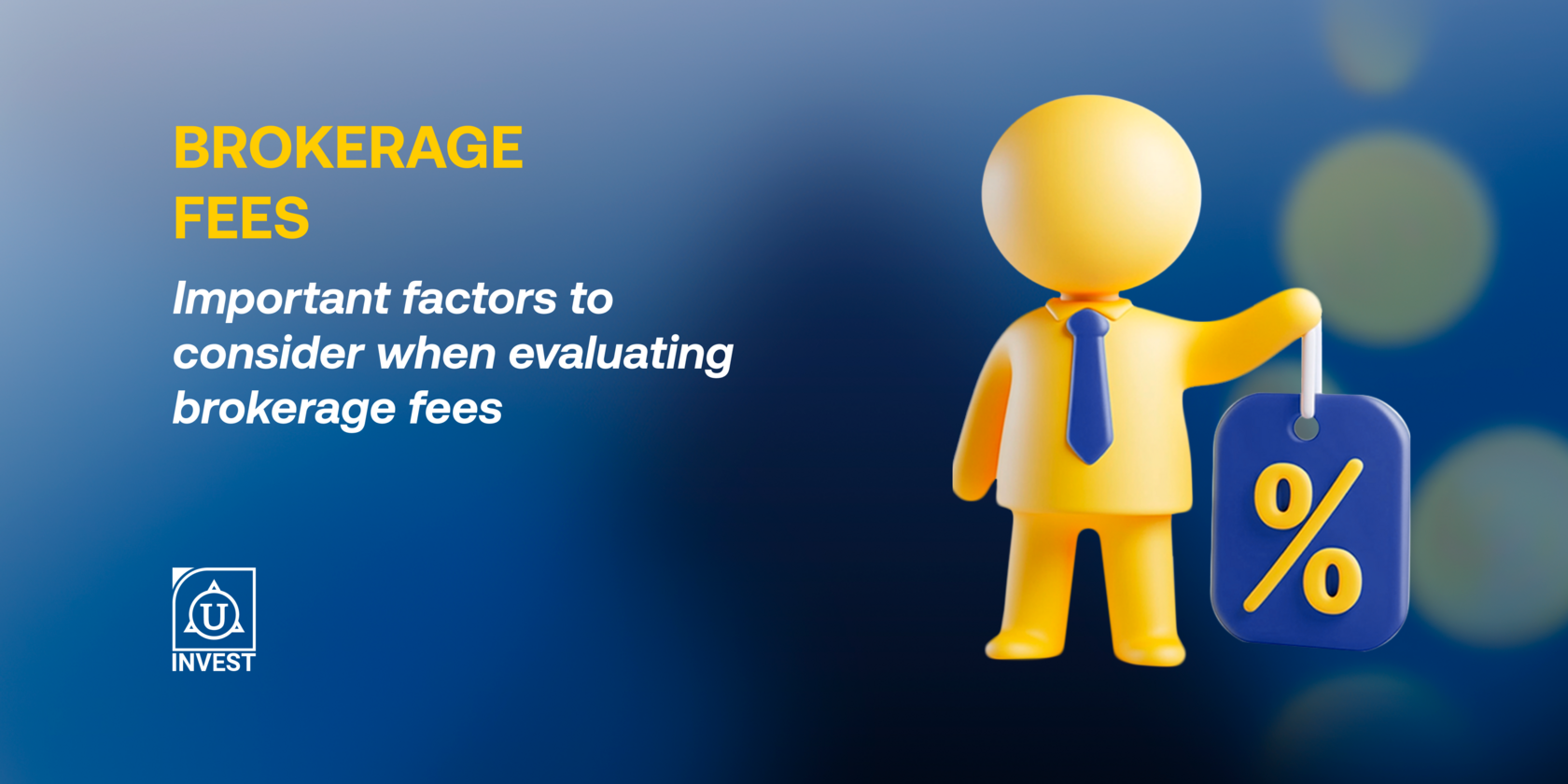Choosing a broker is one of the most crucial steps for every investor, whether a beginner or a seasoned professional. In addition to reputation and service level, one of the key aspects to consider when choosing a broker is its fee structure. It’s important to understand the fees and how they can impact your investment strategy and profitability. In this article, we will review the main types of brokerage fees, hidden costs, and what to focus on when selecting a broker.
Types of Brokerage Fees
Brokerage fees can vary depending on the broker, country, and types of financial products offered. Let's explore the key types of fees investors may encounter.
Transaction Fees
One of the primary expenses when working with a broker is transaction fees. Every time you buy or sell stocks, bonds, or other securities, the broker charges a fee. Depending on the broker, this could be a flat rate or a percentage of the transaction amount. Each option can be attractive depending on your investment strategy. For example, for frequent small trades, a percentage-based fee might be more suitable, whereas for large, one-time trades, a flat fee may be more appealing.
Additionally, transaction fees can differ between local and global players. For instance, a stockbroker in Armenia may offer more competitive fees compared to international competitors, making it an attractive option for local investors.
Subscription or Flat Fees
Some brokers charge a fixed subscription fee for access to their services. This can be advantageous for active traders, as high trading volumes often make the flat fee cheaper than paying for each transaction individually. However, for long-term investors who make infrequent trades, this type of fee may be less favourable. Before opening a brokerage account, it’s essential to consider your trading frequency and choose the appropriate fee model.

Asset Custody Fees
Many brokers charge a fee for holding assets in your brokerage account. This can be a fixed amount or a percentage of the total asset value. These fees are important for those planning long-term investments. Investors considering brokerage accounts in Armenia may find more favourable conditions where asset custody fees are minimal or absent.
Withdrawal Fees
Withdrawing funds from a brokerage account may also incur a fee. Some brokers charge a fixed rate per withdrawal, while others may offer one free withdrawal per month. This is something to consider if you plan to regularly withdraw profits or dividends. For example, Unibank Invest does not charge any fees for deposits or withdrawals, which is very convenient for investors.
Additional Services and Hidden Fees
Brokers offer not only basic buy/sell services but also many additional features that can affect an investor's overall expenses.
Fees for Analytical and Advisory Services
Some brokers provide access to analytical data, trading recommendations, and consultations. While these services can be valuable for novice investors, they may come with additional fees. Before opening a brokerage account, study what services are included in the standard package and what requires extra payment.

Access to Trading Platforms
Many brokers offer advanced trading platforms for trading on stock and currency markets. However, access to such platforms may be fee-based. A beginner may be satisfied with basic functionality, while a professional might want to explore advanced features.
Margin Accounts and Leverage
Investors using margin accounts may also face additional costs in the form of interest rates on borrowed funds. If you plan to trade actively using leverage, carefully examine the broker’s terms to avoid unexpected expenses.
What to Consider When Choosing Fees
The right choice of a broker is not only about minimising costs but also finding the optimal level of service. Let’s explore the key points to consider.
Transparency of the Fee Structure
The first thing to look for when choosing a broker is fee transparency. Review the fee schedule presented on the broker’s website and ensure it’s clear and free of hidden charges. For example, if the broker only charges a transaction fee based on volume and for asset storage, and all other services are free, that’s a clear and straightforward fee structure.
Service Level
An equally important factor is the level of service included in the fee. Some brokers offer consultations, analytical reports, and access to professional trading platforms within their fee plans. Before opening a brokerage account, assess what exactly is included in the chosen fee and how it matches your needs.

Compatibility of Fees with Investment Goals
Different investors have different goals. For long-term investors who rarely trade, low asset custody fees and no subscription fees are more important. In contrast, active traders prioritise low transaction fees. If you’re planning to open a brokerage account in Armenia, keep in mind that local brokers may offer fees better suited to specific investment strategies.
Impact of Fees on Long-Term Investments and Active Trading
For long-term investors, low asset custody and withdrawal fees are crucial. On the other hand, active traders should look for brokers with low transaction fees. In any case, before opening a brokerage account, make sure the broker’s fee policy aligns with your investment strategy.
Comparing Brokers by Fees
The brokerage services market offers a wide selection of providers with various fee plans. How do you conduct your own research and choose the right broker?
First, it’s worth reviewing other investors' feedback and broker ratings. This will give you a realistic understanding of service quality.
Second, compare the fee schedules of several brokers to determine which one offers the best conditions.
Third, evaluate the convenience of the trading platforms offered and decide which one is most user-friendly and intuitive for you.
Finally, check what additional services the broker provides and whether they are included in the basic package or require extra payment.
Conducting Your Own Fee Research
Use specialized websites and resources to compare broker fees. Review the terms of the agreements and ask customer support questions to get the full picture. When choosing a broker, it’s also important to consider its reputation and licenses. For instance, in Armenia, brokerage activities are regulated by the Central Bank.
Conclusion
Choosing a broker is a serious decision that requires attention to detail. Brokerage fees can significantly impact investment profitability. It’s important to carefully study transaction fees, asset custody fees, and withdrawal fees, while also considering additional costs such as access to analytics. Examples of Armenian brokers like Unibank Invest show that the local market offers options that can satisfy the needs of both long-term investors and active traders.
